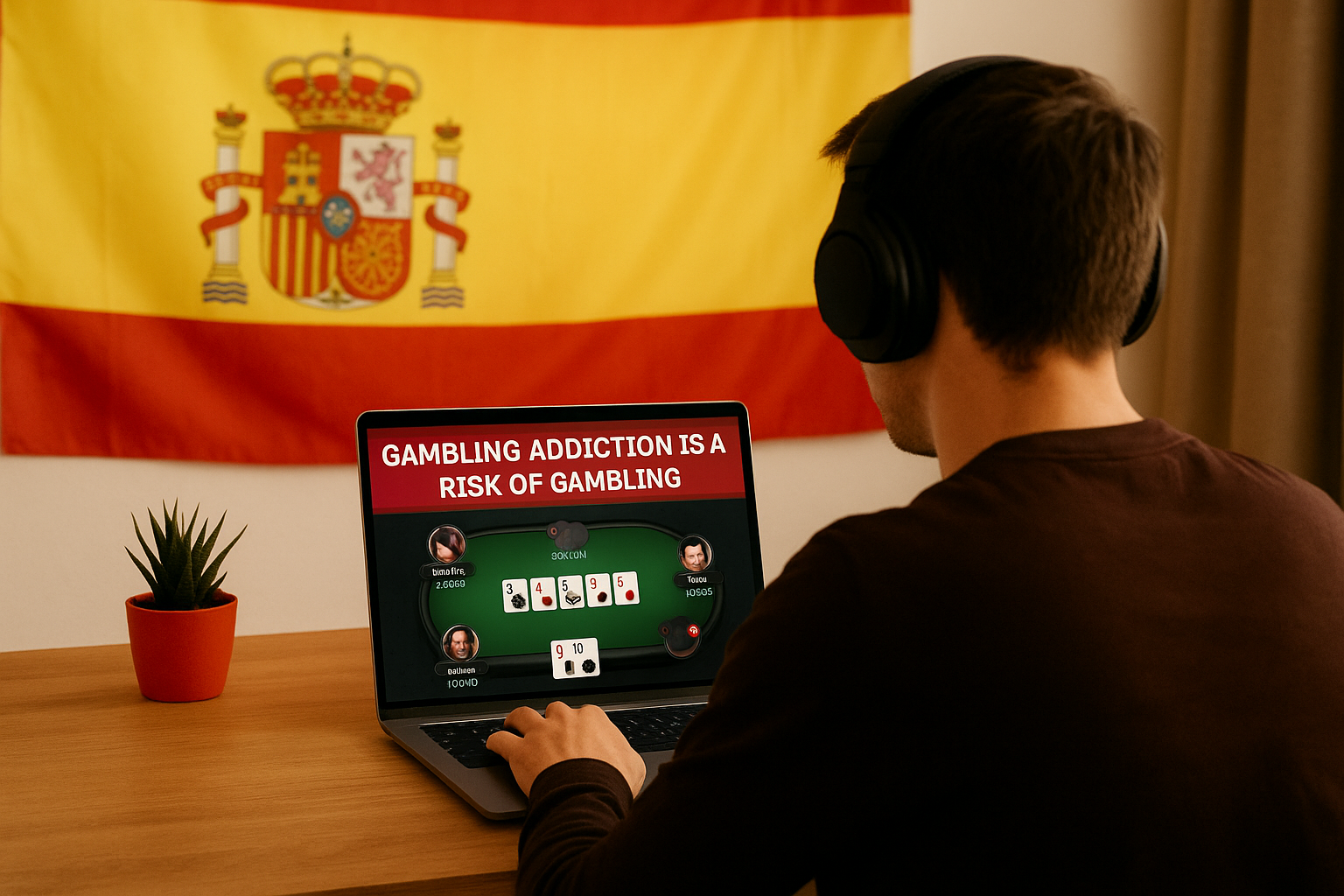News
Spanish Gambling Label Warnings and Impending AI Centralized Deposit Monitoring

The Spanish gambling authorities are pushing for regulatory overhauls in online gambling consumer protection, including what could be the first AI customer intervention program in Europe. The DGOJ (Directorate General of the Regulation of Gambling), wants to set up centralised deposit limits, roll out mandatory harm labelling on gambling products and is currently developing the AI responsible gambling algorithm. A €1 million research grant was pledged to the algorithm, which is expected to go live in March 2026, and Directorate General Mikel Arana states it will be mandatory for all operators in Spain.
Deposit limits, which had been restricted to €600 a day since 2022, will be governed through a Centralised Monitoring System. Instead of giving players limits of €600 per day on any operator, the DGOJ will verify all gambling deposits, so players have €600 deposit limits on ALL operators. The goal is to deter players from addiction and solve problem gambling. But will it pay off or not is a tough question to answer.
Spain’s Online Gambling Deposit Limits
The initiative looks to enforce Spain’s strict deposit limits, which were set in 2022 with the Royal Decree 958/2020. This decree defines a lot of Spain’s core gambling regulations, covering advertising, responsible gambling and the deposit spending limits. The thresholds for Spanish gamblers, which all licensed operators must abide by, are:
- €600 daily limits
- €1,500 weekly limits
- €3,000 monthly limits
You do not need to stick to these limits, they can be changed manually. Should you change your limits and increase them, you will have a 72-hour cool-off period before they kick in, and the limits can only be modified once every 3 months. On top of that, operators are held accountable for checking whether you display any signs of problem gambling.
The operators also reserve the right to reject your deposit limit increase, but this only happens if you have been flagged in the system before. Either, you have been on a self-exclusion register, or have a dubious history that can be interpreted as problematic gambling.
Centralized Monitoring System and Controlling Player Transactions
The algorithm pledged by the DGOJ would use machine learning software to monitor player activity and detect any bad habits. Mikel Arana reinforced the need for an AI detection system, stating:
“We have seen that from 50 operators, around 38 have no risky players, which is hard to believe… The goal is to define an algorithm capable of distinguishing between two groups of players, regular players and risky players.”
The detection system, however, would not automatically prevent suspected problem gamblers from playing. Arana said that the operators will be responsible for reaching out to players about their gambling habits, and they also have to stop sending promotional messages to the players.
Automated checks would be nationalized, meaning that if a player is suspected of addiction, then every single licensed Spanish casino and sportsbook they are signed up at will be notified. If you think about it, the AI system would see all your deposits, know which operators you are signed up to, and could trigger alerts to all of the platforms if you display any compulsive betting or bad gambling habits
Tobacco-Style Harm Labels for Gambling Products
Alongside the AI driven gambling protection detector and the reinforced limits, the DGOJ also wants gambling operators to display public health warnings regarding gambling. It has been likened to anti-smoking labels on tobacco products. Online gambling operators will need to display three slogans across their sites, mobile apps and digital adverts.
- La ludopatía es un riesgo del juego
- La probabilidad de ser un jugador que pierde dinero es del 75%
- Las pérdidas del total de jugadores superan en 4 veces sus ganancias
Translating to:
- gambling addiction is a risk of gambling
- the probability of being a losing gambler is 75%
- losses for all gamblers are four times greater than their winnings
These will pop up across gambling sites instead of the generic “play responsibly” or other slogans deemed too soft. By slapping these slogans onto gambling products, especially ads containing welcome bonuses or promotional offers, the DGOJ aims at increasing awareness, especially among younger players.
Does Spain Have a Gambling Problem?
Insiders will not be surprised by the strong advertising laws that the DGOJ is rolling out. On the 10th of September, the Ministry, headed by Bustinduy, published a study on the impact of gambling on students aged 14-18. The studies indicated that only 48.4% of students questioned received education regarding the risks of gambling. And, perhaps more alarmingly, 19.8% of the respondents said they had experience gambling with real money. Of that, 62.5% had only done so once a year, and when doing so, they did not spend more than €6 in a single day.
The DGOJ advertising plans also came a few months after the DGOJ published the iGaming Market Research Report, which found a 20% increase in Spanish online gambling. In regard to problem gambling, another study that was published on ResearchGate in 2024, studied the habits of over 2,700 university and vocational school students and found that only 0.51% displayed problematic gambling habits.
The data is pretty contradictory, with official DGOJ studies pointing to a greater danger, whereas operators and the independent study referenced seem to show Spain doesn’t have a gambling problem. Nevertheless, if a nationalized monitoring system were put in place, the research would also become more accurate. Providing the AI algorithm is accurate itself.

The Intentions and the Tensions of New Gambling Plans
The approach is ambitious, but operators are afraid that with strict oversight and enforcement, the proposals run the risk of putting players off licensed sites. The international casinos operating in Spain, but that are not actually licensed in the country, offer gamers far greater anonymity, and privacy. The licensed international sites are mandated by regulators (in the countries they are based) to provide gamers with responsible gambling tools, and even have self exclusion functions.
But these are not monitored outside of the player’s activity on any given site. They could play at one international site and change their deposit limits or self exclude, and still sign up to another site and play as usual.
The intention to monitor the well being of gamers and provide education to younger audiences is made in good faith. However, operators have wellfound concerns about the tensions it will cause among gamers. Not so much the labelling, but the enforcement of limits across all platforms, and the constant monitoring that will be done through the AI detection system. Spain is setting a precedent with these strict laws, and whether they prevail or prove to work to the opposite effect, the rest of Europe will be watching closely.











